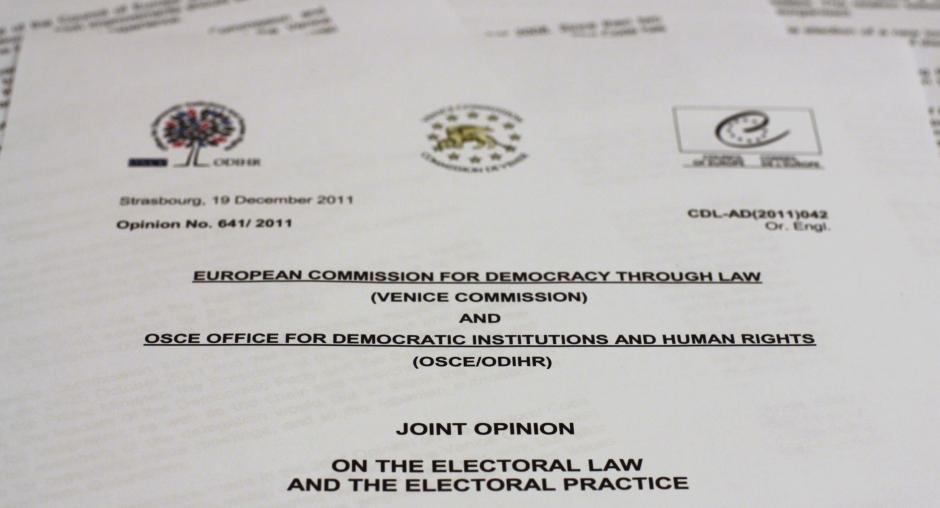Albania’s Electoral Code thorough foundation for elections, improvements still required, say ODIHR and Venice Commission

Albania’s Electoral Code provides a thorough technical foundation for democratic elections, according to a Joint Opinion by the OSCE Office for Democratic Institutions and Human Rights (ODIHR) and the Council of Europe’s Venice Commission released on 19 December 2011. However, it says that recent experience in the implementation of the Code since its adoption in 2008 shows that a number of improvements are still required.
The Joint Opinion notes that recurring problems with the conduct of democratic elections in Albania cannot be resolved through changes in legislation alone. Meaningful improvement in the quality of the electoral process will not be achieved without changes in the approach and practices of the main political groupings and their leaders, as well as without impartiality of the electoral administration, it adds.
The document says that weaknesses in the Code exposed during the recent elections need to be addressed. Since the time of the Code’s adoption, parliamentary elections were held in Albania in 2009 and local elections in 2011.
In particular, amendments could include: more detailed rules governing the appointment of election commission members and the rejection of judges from the Electoral College, as well as changes in and clarification of the vote counting procedures, especially concerning miscast ballots. There could also be further clarification of specific regulations concerning local elections, which, the document notes, are less regulated in the Code and appear to be treated in a secondary manner. Clarifications are needed in particular regarding provisions on media access, campaign financing, and the peculiarities of the elections in Tirana.
ODIHR and the Venice Commission jointly reviewed Albanian electoral law and practice upon a request from the Secretary General of the Council of Europe.
ODIHR reaffirmed it readiness to continue assisting the authorities in Albania in efforts to create a legal framework for democratic elections in line with the country’s OSCE commitments and other international standards for democratic elections.
